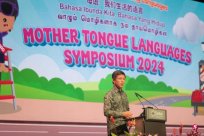
"Smart AI users" may not understand AI's technical details or how skilled programming.However, they have enough knowledge to effectively use this technology to improve work efficiency.
Artificial Intelligence (AI) is expected to redefine the future work method, so people need to master this technology.For a long time, many people think that AI is essentially a special technology that is used to perform very specific tasks.For example: radiologists use AI to help analyze X -ray images to evaluate the medical condition of patients, but AI is only used for this work.However, a AI chat robot that can handle multiple tasks at the end of 2022 has changed the rules of the game.
ChatGPT shows the world that AI has the potential to become a general technology like a computer and smartphones.This means that with the development and popularization of technology, everyone may use AI for different purposes in multiple fields and benefit from it.Even now, ChatGPT can help office staff and students draft reports, help computer programmers write, check and repair program loopholes, help artists generate conceptual design, and so on.
As AI more and more affects all aspects of our lives, having AI skills will become a prerequisite for job hunting in the next 10 years, just like computer skills 15 to 20 years ago are the necessary skills for job hunting.
In fact, in January of this year, the International Monetary Fund pointed out that AI will affect nearly 40%of the jobs around the world, which indicates that everyone should learn AI skills to some extent to avoid falling behind.
But not everyone must be an AI expert and understand how to program.Just like computer skills, the AI professional level required in the future will be different according to the role and work of individuals.
Knowing the limitations of AI, programming in the future
Two major groups are worthy of attention.The first group is "Smart AI users".They may not understand AI's technical details or how skilled programming.However, they have enough knowledge that can effectively use this technology and improve work efficiency.For example, by writing the prompt question, the staff allows ChatGPT to quickly complete the summary and writing of multiple reports, which saves a lot of time than personally handwriting.At the same time, they are very clear about where the chat robot is limited. For example, the chat robot may not know which country has a higher degree of correlation to which country.
The quality control of identifying and evaluating AI output results is crucial.Because AI is trained in imperfect, incomplete or even error data.Therefore, as many past reports have been pointed out, the output results of AI may be wrong.
Therefore, smart AI users must be able to recognize the defects in AI response and know how to verify these defects.If the wrong answer is used for decisions of key tasks, the result may be catastrophic.
The second group is "AI producer". They have professional skills and can write code and create AI programs.Think about the engineers who have created ChatGPT and Sea-Lion (Southeast Asia Language Trump).SEA-Lion is a Singapore-made AI chatbot that uses comprehensive data from Southeast Asia and customized the culture and language of the region.
Those who are more skilled will study deeper professional skills and become the forefront of AI technology, leading the development trend of AI technology.They have doctorate degrees, including university professors, researchers and top engineers.
How do people become intelligent AI users and producers through learning skills?One way is through higher skills education, and the other is to conduct continuing education and training (CET) for adults.
First of all, students who receive higher skills education can develop basic understanding and skilled use of AI without having to program.This allows them to understand what AI can do and know how to use it in the field of interest.
As programming becomes more and more simplified, it is necessary to create basic AI without high -level coding skills. It is necessary to understand the basic knowledge of AI.
recognize the necessity of helping students to prepare for the world where AI -driven. Singapore Nanyang University of Technology recently launched an AI trimming course that is open to all undergraduates to help students become intelligent AI users.
Students will learn how AI and data science solve problems across different professional fields.They can customize this minor course by selecting cross -disciplinary courses consistent with their majors or interests.
NTU also launched a new bachelor's degree course of "AI and Society" to train AI producers that can develop people -oriented solutions.It focuses on cultivating students' profound technical expertise, supplemented by the understanding of AI that may be abused.Students will also have the opportunity to develop AI solutions for their enthusiastic fields and industries.
We also need a group of very talented AI producers. They must be able to write complex code and can create successful AI solutions very quickly to cope with the various challenges we are facing.In order to cultivate the "assault players" among these AI producers, NTU has a new "Turing AI Scholar Program".
For those who are already in the workplace, the AI courses of continuous education and training can help them adapt to the workplace changes brought by AI, learn related professional skills, and improve production efficiency.These skills can also help them find new occupations related to AI.
To adapt to the AI world to adapt, learn and teach
We encourage more people to learn AI skills. At the same time, we must also consider how AI will affect the learning itself.Because AI can place all the knowledge in the world at the fingertips of people, it is particularly easy to obtain. Therefore, we may naturally ask: Is there the need for learning?In fact, learning must always exist.The reason why we can perform daily tasks is because we have obtained knowledge that can understand the different aspects of the world.Without knowledge, we will be unable to understand what happened around; in the same way, without knowledge, we cannot understand the results of AI output, and cannot judge the quality of this result.
To understand this, a good example is to compare AI to the application of the global positioning system (GPS).If we don't think about it and blindly follow the instructions of GPS applications, we may not be able to distinguish whether this GPS application will bring us to a place with the same name, but it is a place where the destination is wrong.
This example shows that even if AI already has information, we still need to have a solid and work -related knowledge foundation.Only in this way can the results of the AI output be tested, and the AI cannot be done, more creative and value -added.
Another problem is that if we stop gaining knowledge, it is a huge harm to creativity.Creativity is inspired by knowledge -without it, we will not be able to develop new ideas and discover new things.
Therefore, in a world where AI is everywhere, increasing knowledge to enhance creativity will become more important.
In the AI world, teachers need to re -examine how teachers teach.Under the ideal state, we hope that education can be tailored for each student, and each student can have a teacher.However, the limitations of resources and time make this requirement unrealistic. We usually have only one teacher to teach the whole class.
But, with AI, one -on -one teachingIt becomes possible.A online course driven by AI can adapt to the learning rhythm and ability of each student in the class at the same time.For example, if AI can evaluate which students have higher levels of understanding and acceptance in real time, they can provide these students with higher -level courses.
AI can also adjust the curriculum mode it presented to students according to the preferences of student learning style.For example, students who prefer vision can be taught with more graphics; for students who are listening to the preferences, they will receive more audio -based courses.
AI's personalized learning can also help students identify the blank spots in knowledge and recommend the corresponding courses to fill these gaps.This means that teachers can focus on teaching students' new skills and knowledge, especially those new skills and knowledge that AI is not good at.
AI can also help teachers predict whether students may be backward in academic performance in order to provide help in time.AI can also predict students 'learning performance based on students' past academic records and records of students in the past.
Since 2020, NTU has been using such AI tools to help teachers responsible for student affairs have identified students who may face challenges in completing their studies at the beginning of each semester.With this tool, these teachers can now pay more attention to helping these recognized students, provide them with more support, and help them complete their studies smoothly.
When students can use AI tools such as ChatGPT to generate answers in real time and help them write papers, another question that teachers need to consider are how we should evaluate students.
Instead of writing answers to a question, it is better to ask students to use ChatGPT to search for answers, and evaluate the answers given by the chatbot to recommend how to improve the quality of the answer.
As AI gradually changes this world, we hope that this technology can improve everyone, not just a specific population.In order to do this, everyone needs to learn AI skills to some extent to understand the power of AI and fully use AI.Only in this way can we open our hearts, embrace the infinite possibilities that AI may bring, and fully harvest the beautiful fruits that it can bring.
The author is the president of Nanyang Institute of Technology
Creation Chairman of Singapore's National Artificial Intelligence Core Plan
Original QS Insight Magazine (Britain), the translation is provided by the author




